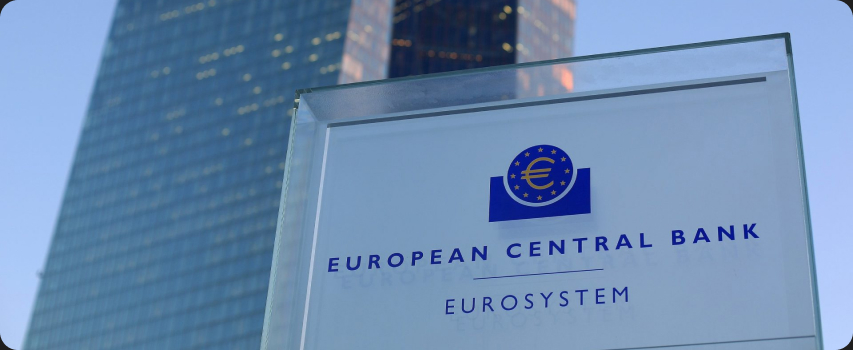- Телефон: +382 68 45 77 45
- Імейл: info@alt-industry.com
- Адреса: Нєгошева, 10, Герцег-Нові, Чорногорія
How to open an account in a European bank?
Any foreigner who meets the required conditions of the bank and the local jurisdiction is eligible to register a corporate account with a financial institution in Europe. The procedure for applicants without local citizenship or residency is usually complex and requires additional checks with counterparties to verify the legitimacy of the business. Foreigners need to prepare thoroughly for the process or seek the assistance of competent lawyers in the field of international law.

Registration of a European account will allow to make profitable investments, claim a high rate of return on deposit, as well as count on loyal lending terms. Compared to Asian institutions, European banks provide full confidentiality of client data, and the capital is protected from unstable economic and political situation in the state.
Choose a particular financial institution should take into account the legislation of a particular jurisdiction and the level of protection in case of property disputes. An important factor is also the purpose of the future account: storage of capital, trading operations, deposits to generate income. For mutual settlements with counterparties, the reliability of the bank and its trust rating are important. Popular financial institutions are those in Germany, Austria and the Baltic States.
What is required for account opening?
Registration of an account in one of the banks in Europe is necessary for legal conduct of business activities in an established company in the territory of the EU countries or when buying a ready-made company. The step-by-step procedure of account opening includes the following steps:
- Jurisdiction Selection.
Depending on the existing business plan and prospective use of the account, it is necessary to choose a particular state. In Switzerland, for example, it is profitable to store capital, but there are restrictions on trading operations. - Company registration.
To formalize a corporate account, you will need to register a legal entity or purchase a ready-made business in the country. Often, offshore companies are opened for the sole purpose of obtaining a bank account to hold capital. If a foreign company owns, for example, a Russian LLC (limited liability organization), this protects the latter from property disputes, according to international law. - Selection of a particular bank and type of account.
The prestige and the list of expected services that a corporate client needs are taken into account. For example, banks in the Baltic States offer quality service. It is also necessary to decide on a specific type of account: current, savings, investment. - Account registration.
Often financial institutions allow you to submit documents online, without the need to come to the state in person. Some banks require a notarized proxy to represent the interests of the founder of the company. That said, a number of institutions will still insist on the presence of the owner or manager of the company to open a corporate account. Despite the difficulties with registration, most banks offer an online account management service. In the future, the account holder will be able to send and receive payments from anywhere in the world, without having to visit a branch of a financial institution. The registration period usually ranges from a few days to a month, depending on the jurisdiction.

Despite the difficulties with registration, most banks offer an online account management service. In the future, the account holder will be able to send and receive payments from anywhere in the world without having to visit a branch of the financial institution. The registration period usually ranges from a few days to a month, depending on the jurisdiction.
To submit an application to the bank, you will need to prepare the following documents:
- a completed request form signed by the official representative of the company (manager or founder);
- proof of the applicant’s identity (e.g., a copy of a foreign passport);
- letters of recommendation from other reputable banking institutions;
- Memorandum of Association and other documents confirming the registration of the company in the chosen jurisdiction.
Frequently asked questions (FAQ)
How long do I have to wait to register a corporate account?
The processing time usually ranges from a few days to 4 weeks, depending on the requirements of the particular bank and the chosen jurisdiction.
Do I have to travel abroad to open an account?
No. There are many financial and credit institutions that allow you to register an account online without the personal presence of the company owner.
Is it possible to keep money in the foreign account of the company without turnover?
Yes. This requires opening a deposit or investment account to which funds can be transferred.
Which jurisdiction is considered the most prestigious for opening an account?
The most popular are European financial institutions, which provide a high level of confidentiality of client data.
Related articles

One of our main advantages is long-term and confidential partnership with the largest international consulting agencies, prestigious banks, financial and auditor organizations. This was the beginning of the creation of an international holding company, which has already crossed the 27-year threshold.
Read more
A holding company is a type of business structure that consists of the consolidation of several separate companies under the management of an ultimate parent. The main company is given the right to make important restructuring decisions and manage the activities of the others. At the same time, the financial, legal and documentary autonomy of each company is preserved.
Read more
A low-tax zone is a specific jurisdiction that offers loyal conditions for registering your own business with moderate taxation rates. The cryptocurrency market in most countries of the world is not fully regulated. Some states issue special licenses for trading, some prohibit the withdrawal and exchange of such money, and most still leave this issue in the “gray zone”. Despite this, the cryptocurrency market is developing every day, there are many companies ready to accept payment in bitcoins or USDT.
Read more